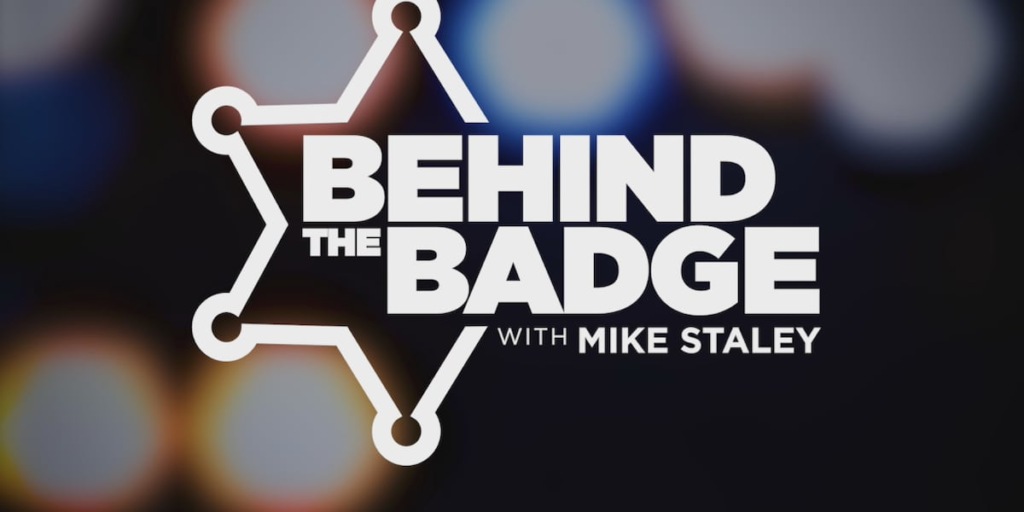HARRISONBURG, Va. (WHSV) – Across the country, law enforcement agencies are working to put their employees’ well-being first and give police officers room to heal and manage the trauma they collect in their line of duty.
According to a report done by First H.E.L.P., a nonprofit organization dedicated to dismantling mental health stigma in the first responder career field, there were 1,287 police officers and correctional officers who died by suicide from 2016-2022. Each day carries different challenges for police officers. 23% of those people were actively seeking help before they passed.
Whether it was a quiet day with no calls, or an active day with all hands on deck, stress levels are fluctuating for officers and can be a detriment to their mental health.
“We go from a baseline level of normal operating through life all the way through extreme emotions and considerations and having to think about how we’re going to handle the situation when we get there, never knowing what we are going to encounter,” Sergeant Butch Shifflett with the Staunton Police Department said.
People often get annoyed when emergency vehicles drive down the road with their lights on. It can cause traffic problems, unplanned traffic changes and force people to move over to the side. People often forget that the people driving the vehicles are trying to save someone’s life. The stress associated with saving lives can often become overwhelming.
“Somebody has to do that job, somebody has to step up, somebody has to be there,” Shifflett said. “We signed up to be police officers so we have to answer that call regardless of what that call is.”
Police calls can range from a missing dog who was found on the corner to double homicides. With the unpredictability of their career, stress can often fluctuate and they have no room to unpack their trauma at home. Shifflett said police officers hide their trauma from families to protect them.
“No matter what we see throughout the day, no matter how busy we are, we’re never going to be able to debrief everything, we’re never going to be able to unpack all of that baggage we collect throughout the day,” Shifflett said.
Departments like the Staunton Police Department have implemented peer support teams to give officers a space to talk through their trauma at any time of the day. These peer support teams are made up of colleagues who endured the same stress as the person in need.
“We’re a support mechanism for officers, for dispatchers for everyone and it’s a huge benefit to have that ability to talk to someone and I can go to one of my other peer supporters and say ‘Hey I need to have a peer support contact, feel supported and also get resources,” Sergeant Ryan Shaw with the criminal investigations unit at SPD, said.
The appeal of these support teams comes from the 24/7 access to help. Law enforcement is a 24/7 job, when the majority of people are off on holidays or weekends, police officers still patrol the streets and respond to 911 calls they are assigned to.
“We have dedicated members throughout the department, people from different shifts and different areas, different specializations that are able to support everyone at the department regardless of who they are and what their position is, basically anytime,” Shaw said.
Though not as developed as the 988 hotline for suicide prevention, officers at Staunton Police Department have access to support and resources at their fingertips when they need it. However, Shaw said the biggest challenge is getting people to use the resource when they need it since the industry has stigmatized mental health challenges for so long.
“The hardest thing to do is to start that conversation,” Shaw said. “For us, we are not therapists we’re not fully licensed clinicians who can sit down and handle everything you need but we can get the ball rolling. Sometimes what people need is just us. They just need to sit and have a conversation with us.”
Resiliency is pushed out in training for all members of the force. When police officers respond to a call, there may be another call right after they have to respond. When the next call comes in, officers have to forget the previous call and help the next person in need. Seth Hickerson is the CEO of My Steady Mind, a training program to help first responder prioritize their mental health and give them the necessary skills to stay resilient in their day-to-day.
“I don’t think a lot of people truly understand what they get exposed to on a daily basis that you don’t hear and read about and how it affects them personally and emotionally,” Hickerson said. “We talk often in news just about the numbers. We neglect to talk about the people and the one’s working the profession.”
People refer to police officers by their rank and titles out of respect. However, it’s easy to get lost in the names and logistics and forget that officers are people behind their titles and badges.
Copyright 2024 WHSV. All rights reserved.

